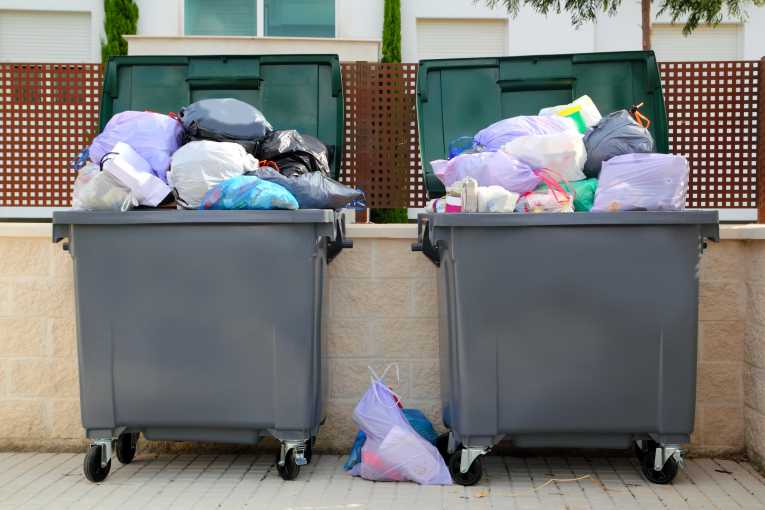Dubai's growing garbage problem has started a debate among the country's officials and environmentalists, some of whom are eager to see a pay-as-you-throw (PAYT) scheme implemented.
Each person in the United Arab Emirates (UAE) generates around 2.5kg of waste per day, which at over 900kg a year is around 400kg more than that generated by the French or Italians. Much of the rubbish is comprised of recyclable materials, but the majority of it ends up in landfills like Al Saj'ah - a four square kilometre area of what was once virgin desert.
Its surface is covered with a thin topping of sand to preserve hygiene and to offset some of its aesthetic unsightliness, but come closing time at the end of each day, nearly 1,000 trucks will have visited the site and dumped 4,000 tonnes of waste within it.
An on-site material recovery facility (MRF) attempts to salvage some of the recyclable material bought to the landfill, and indeed manages to recycle up to 30 per cent of the waste through both manual and mechanical sorting, but much still ends up in the ground.
Georges Barakat, marketing manager of the MRF, said: ''The worth of recyclable materials in an average-sized waste bag generated by a typical household is approximately Dh1.50 (around 25 pence).''
Official figures have shown that Dubai's rubbish production tripled to nearly four million tonnes between 2000 and 2009 - a 16 per cent annual increase.
As such, environmentalists are gunning for the creation of a PAYT scheme, which would either incentivise recycling, or penalise residents for creating unnecessary waste. Habiba Al Marashi, founder of non-government organisation Emirates Environmental Group, said: ''If there's a well-studied, well-structured PAYT plan that would lead to a reduction of the amount of waste going into landfills, I'm all for it.''
However, some officials believe that implementing a PAYT scheme would prove too challenging as people's views on waste generation are ill-informed. James McGuire, Operations Director of the MRF, said that charging households might prove 'impractical', and that focus should be directed to behavioural change: ''Sustainability is down to the conscience of individuals. If the public is well informed, it helps to change individual behaviour.''










